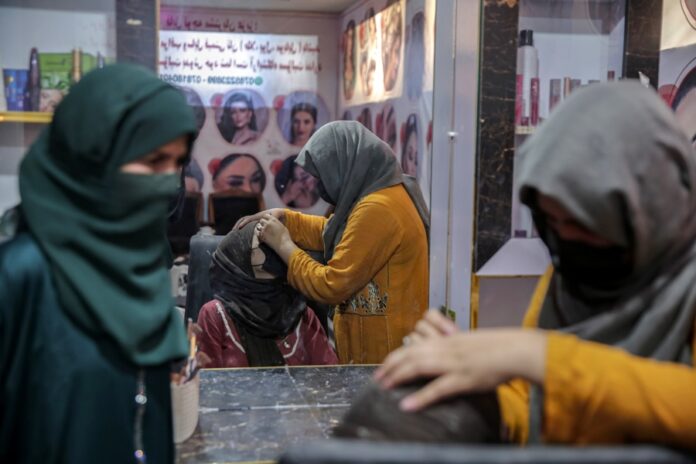
Kabul, Aug 16 (EFE).
Four years after the Taliban returned to power, Afghanistan remains the only country in the world where girls and women are barred from secondary schools and universities, leaving millions without an education.

According to UNESCO, nearly 2.2 million girls are currently excluded from education beyond the primary level, a situation its Director-General, Audrey Azoulay, described this weekend as “deeply worrying.”
Since August 2021, when US troops withdrew and the Taliban regained control, authorities have imposed strict restrictions on who can attend school and under what conditions.

High schools and universities for women remain closed. The regime enforces gender segregation, strict dress codes, and heavy control of curricula, emphasizing religious instruction and the Taliban’s narrative.
Even within the Taliban, there are rare voices of dissent.

Deputy Foreign Minister Abbas Stanakzai, who participated in the 2020 Doha Agreements that included promises on women’s rights, has criticized the ban.
“Today, among a population of 40 million, we are being unjust to 20 million people (…) We have deprived them of all their rights; they cannot inherit, vote, study, or even attend mosques. The doors of schools and universities are closed to them,” he said, according to local media.

By contrast, the interim minister of Higher Education, Neda Mohammad Nadeem, defended the restrictions. “Academic research continues. If studies conclude that women’s education in this form is acceptable, then authorization may be granted.”
For Afghan students, the promises ring hollow.
“Nothing the Taliban say about education is true. They have banned women’s education and there is no hope from them,” 17-year-old Nazo told EFE.
“The international community does not really consider Afghan women as human beings. If it did, it would have taken at least one step in these four years,” said Madina, 16.

The long-term impact could be devastating.
UNICEF warns that if the ban persists until 2030, more than four million girls could be permanently denied access to secondary and higher education.
Amnesty International stressed this week that the exclusion of women is reinforced by the dismantling of institutions that once defended their rights, now fully under regime control.
In daily life, Kabul reflects this stark reality. Shuttered women-run businesses, silenced female voices, and strict dress codes dictated under sharia law. EFE







